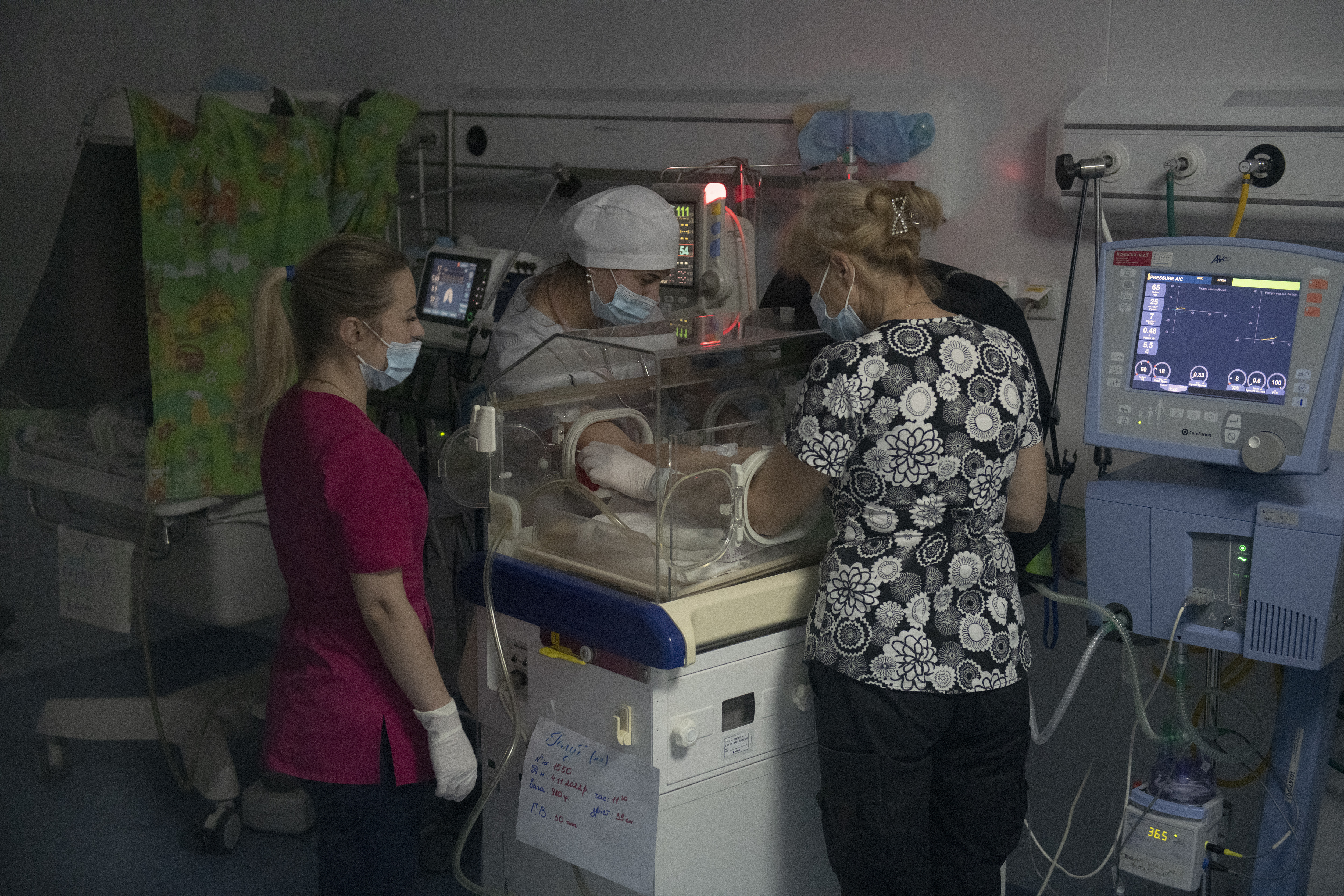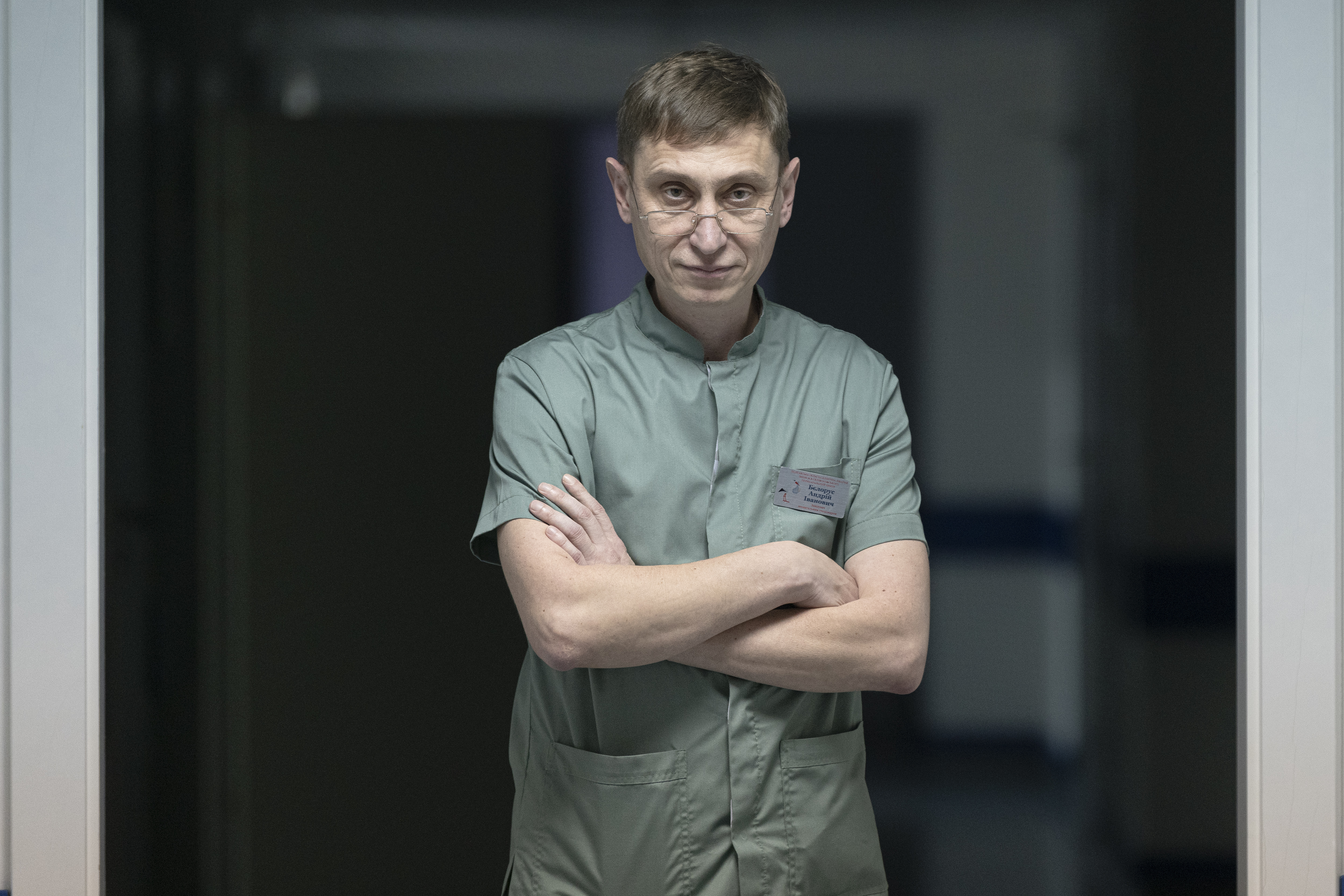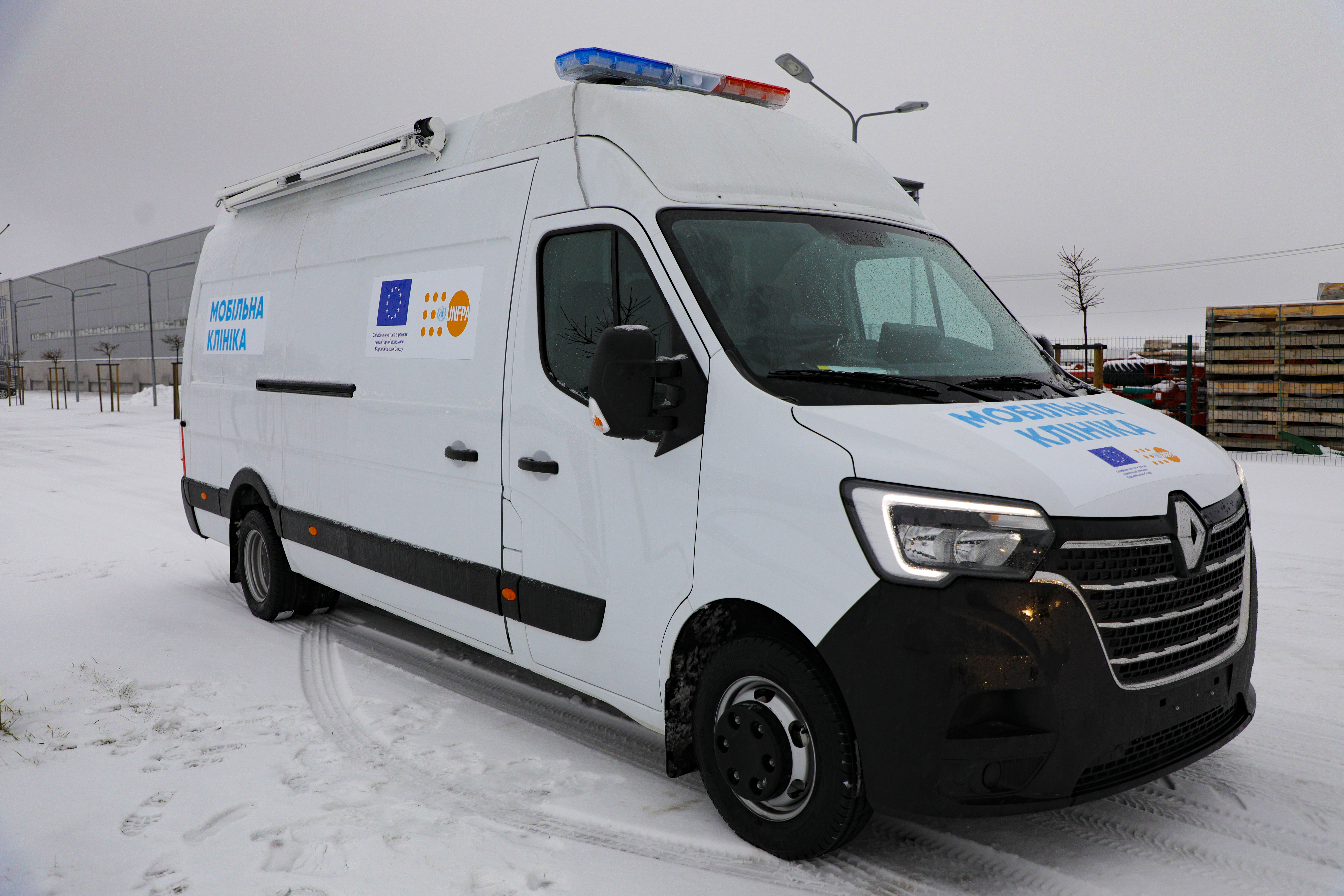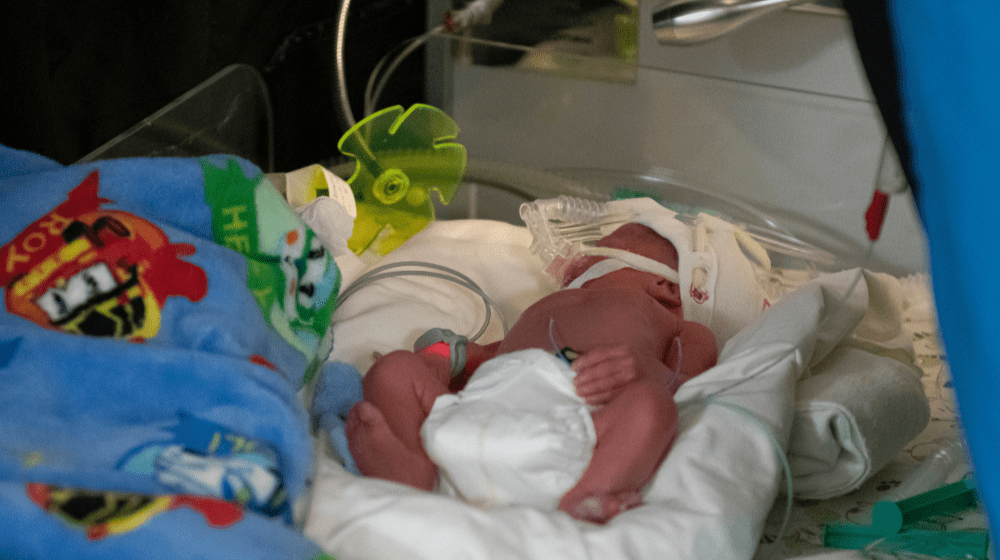The Perinatal Centre, designed for to facilitate 2,000 deliveries per year, is located at the Poltava Regional Clinical Hospital, named after M.V. Sklifosovsky. Treatment is offered to pregnant women and newborn babies with complications. Numbers needing treatment have increased considerably since the beginning of the war in Ukraine. Stress, malnutrition, disruption of local transport and communications, destruction of medical facilities and lack of medical assistance in territories temporarily not under Government of Ukraine control are the most serious problems affecting pregnant women in Ukraine. According to doctors, serious complications, premature births, and miscarriages have increased since the start of the full-scale invasion of Ukraine.
The centre has an adult and a pediatric intensive care unit where mothers and newborn babies are treated. Since the beginning of the war, UNFPA has delivered more than 2 tons of medicines and other supplies, allowing the hospital to function and provide care.

Many pregnant women fled from the region to western Ukraine, where they hope to find shelter and safety. But the number of births in Poltava did not decrease, because women came to Poltava from regions even more seriously affected by the war: "Women from other regions come to us. Now it is mainly Kharkiv, Sumy, and Zaporizhzhia regions," says the head of the centre, Dr. Victoria Vashchenko.
Dr. Andrii Vyazovskyi has been working as an anaesthetist for about 30 years. Firstly in the Kharkiv maternity hospital, and now in the Poltava Perinatal Centre, he has been saving the lives of women and children. The centre has beds for six women and 12 babies. Most of the beds are currently occupied, although according to the doctor: "It is better when women give birth and are not moved to us. Although our department is always ready to receive and provide assistance."

The war necessitates adjustments to the work of the centre as well. The bomb shelter is equipped with everything necessary for childbirth and emergency care. At the moment the department is working in its normal venue, because transporting "difficult" babies and mothers to the shelter always carries risks to their lives. Doctors and nurses make decisions about staying above ground or transferring to the shelter based on what is best for mothers. The doctor says: "Here, on the 6th floor, we see drones and rockets flying. Everyone is scared, but we have to be there, to save the lives of women and children."
“On the worst days, when everyone else went down to the shelter, the anaesthetist, the nurse and the most critical patients remained on the floors here. We understood that some of them simply might not survive removal to the shelter."

Another problem faced by maternity hospital doctors in Ukraine is the disruption of transport between cities and rural areas, roads were blown up routes mined. This makes it difficult for pregnant women to access medical care. UNFPA, with the support of the governments of Spain and Denmark and the EU, has procured and supports the work of 32 mobile reproductive health teams. These are ambulances, fully equipped for examinations, consultations and prompt transport of women to hospitals in the regional centre. One of these teams will work from the Poltava Perinatal Centre.

"We are very grateful for this help. After all, when it comes to medical assistance during childbirth, it is a question of saving the life of a woman and her child. We cannot delay," say the doctors at the perinatal centre.


